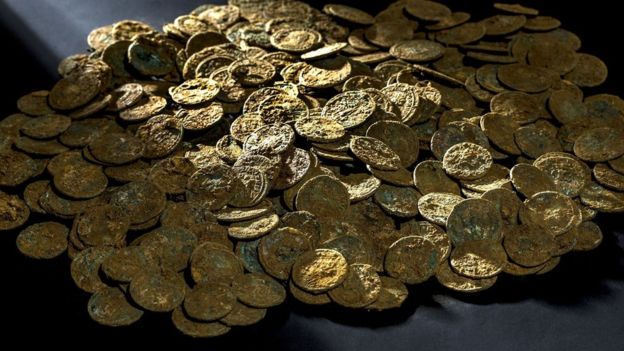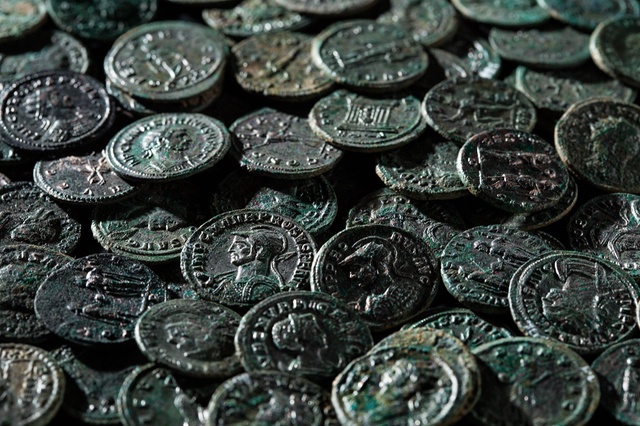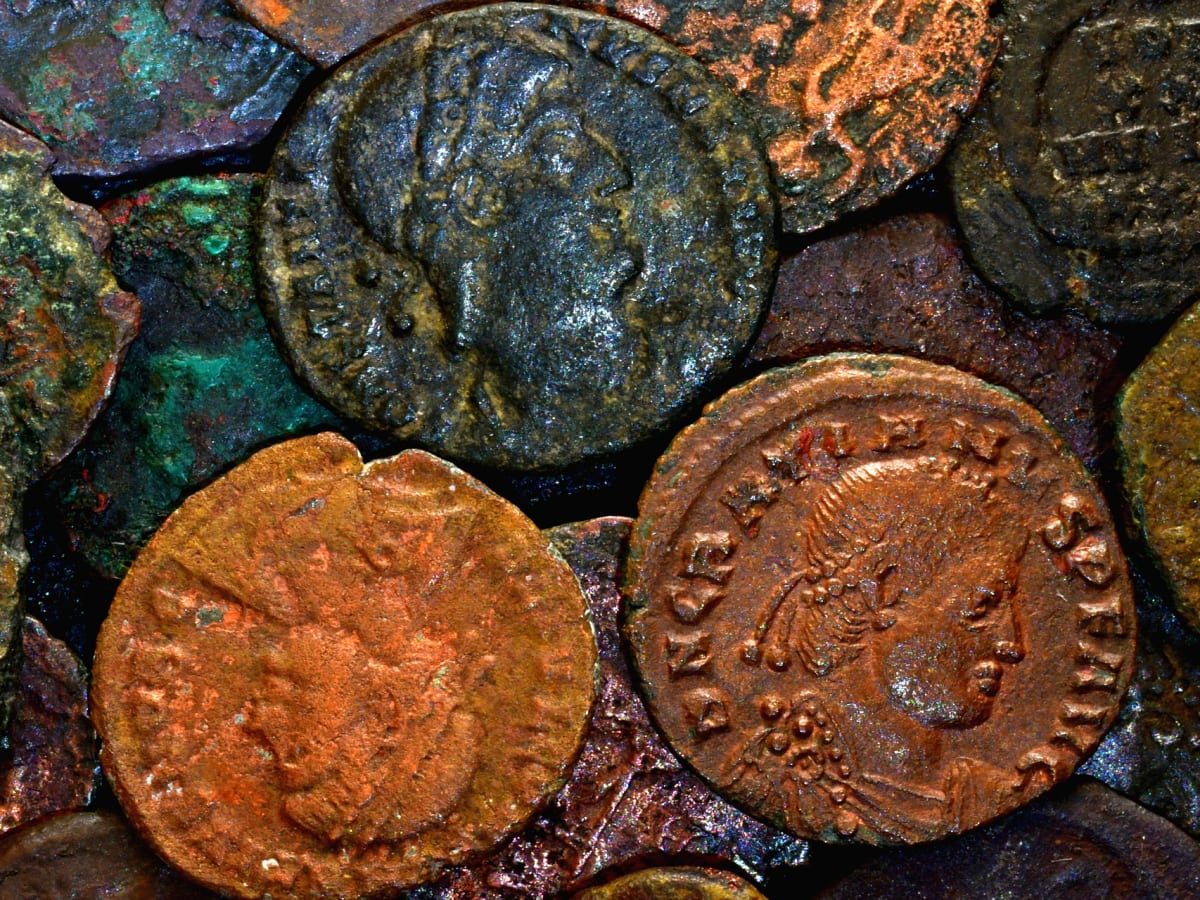An extensive Roman coin collection has been found in a Swiss orchard, one of the most significant archeological discoveries.
In Ueken, a tiny village in northwestern Switzerland, a farmer discovered the ancient coins several months ago.
He excavated them by accident while inspecting his cherry trees. He then contacted local archaeological experts, who confirmed the presence of a collection of more than 4,000 bronze and silver Roman coins.

Large troves of Roman coins are often found in Britain. A collection of nearly 60,000 rusted coins known as the Frome Hoard was found in a field in Somerset in 2009.
This Swiss collection is also one of the largest ever found outside the UK, making it very special.
The find also comes at a time of increased focus on Rome and Roman history worldwide, as evidenced by the unearthing of an intact tomb at Pompeii’s archaeological site in October.
Archaeologists explain that Roman coins are typically found buried in large quantities, maybe because they were offered as a ritual gift to the Roman gods.
On the other hand, the Frome Hoard was left in place and mostly forgotten until relatively recently. Although most of the Swiss coins have been dug up, no specific function has yet been proposed.

The excavators have discovered that their owner buried them at regular intervals between 270 and 294 AD and never returned to get them.
However, the coins were removed from circulation shortly after their introduction, but they are estimated to have been worth between one and two years’ wages at the time.
The coins, made of bronze and silver components, have been remarkably well-preserved in the soil.
“The owner must have deliberately chosen these coins to hoard them,” Swiss coin expert Hugo Doppler explained to the Swiss Broadcasting Corporation. ”
Their silver content would have guaranteed specific value conservation in a time of economic uncertainty.”

Swiss archaeologist Georg Matter was thrilled by the discovery.
“As an archaeologist, one hardly experiences something like this more than once in one’s career,” he told Spiegel Online.
As exciting as the discovery is, though, the Swiss farmer who first discovered the coins won’t be able to keep his find.
“He will likely get a [finder’s] fee,” he told Agence France-Presse, “but the objects found belong to the public, by Swiss law.”
The coins will be on display at the Vindonissa de Brugg Museum in the Swiss canton of Aargau, which focuses on Roman history.





